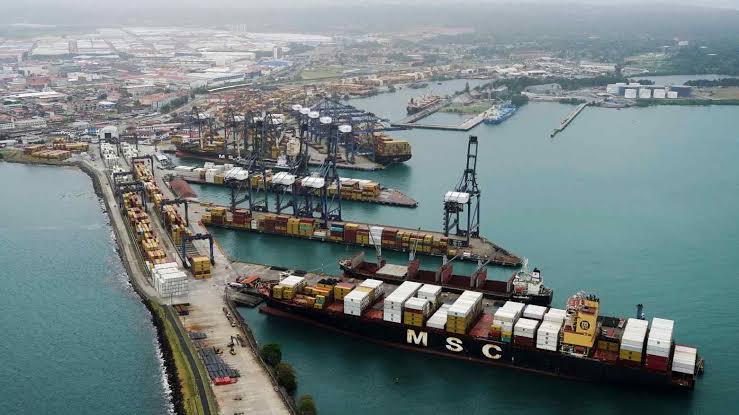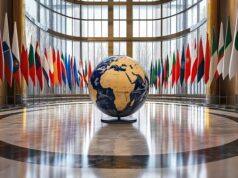Panama denies US claim on free Canal transit for American vessels

A new diplomatic controversy has erupted between the United States and Panama over the Panama Canal, after the Panamanian government categorically denied a claim made by the US State Department that US government vessels can now transit the strategic waterway free of charge.
The dispute comes amid heightened tensions regarding US concerns over China’s influence in the region, as well as comments made by former President Donald Trump about “taking back” the canal.
The disagreement began when the US State Department posted a statement on X (formerly Twitter), asserting that Panama had agreed to waive fees for US government ships navigating the canal.
“US government vessels can now transit the Panama Canal without charge fees, saving the US government millions of dollars a year,” the statement read, alongside an image of a naval vessel entering the locks of the canal.
However, the Panama Canal Authority (PCA) quickly issued a statement contradicting the US claim, emphasizing that no such agreement had been made.
“In response to a publication released by the United States Department of State, the Panama Canal Authority, which is authorized to set tolls and other fees for transiting the Canal, reports that it has not made any adjustments to them,” the PCA said, adding that it remained open to dialogue with the US government on the issue.
The Panamanian government also underscored that over the past 26 years, the United States has paid only $25.4 million in tolls for warships and submarines transiting the canal, averaging less than one million dollars annually. The US State Department has not responded publicly to Panama’s denial.
The controversy comes at a sensitive time in US-Panama relations, as former President Donald Trump recently escalated rhetoric regarding the canal, implying potential US action to regain control of the strategic waterway.
“China is running the Panama Canal that was not given to China, that was given to Panama foolishly, but they violated the agreement, and we’re going to take it back, or something very powerful is going to happen,” Trump told reporters.
His remarks were met with swift rejection from Panama, which reiterated its full sovereignty over the canal. The 1977 Panama Canal Treaty, which led to the transfer of the canal from US to Panamanian control in 1999, does not allow for the kind of US intervention Trump alluded to, unless the canal’s operation is threatened by internal conflict or foreign aggression.
Trump’s statement also highlights a growing concern in Washington over Beijing’s economic presence in Panama, particularly around the canal. Since Panama established diplomatic ties with China in 2017, Beijing has significantly increased investments in the country. Chinese companies have secured port management contracts and other infrastructure deals, raising alarm in Washington that China’s presence could undermine US strategic interests.
However, Panama’s government has attempted to ease US concerns. During a recent meeting with US Secretary of State Marco Rubio, Panamanian President Raúl Mulino assured the US that Panama would not renew a 2017 memorandum of understanding with China’s Belt and Road Initiative (BRI).
Mulino even hinted that Panama could seek to exit the agreement earlier than expected, a move likely aimed at reassuring Washington.
Since gaining full control of the Panama Canal in 1999, the Panamanian government has managed the waterway through the independent Panama Canal Authority. The PCA is responsible for setting transit tolls, managing operations, and ensuring the canal’s neutrality.
Despite Trump’s claims, the Chinese government does not control access to the canal. The canal is open to global maritime traffic under international agreements.
However, Chinese companies have won contracts to operate port terminals at both ends of the canal.
One such company, Panama Ports, is a subsidiary of the Hong Kong-based CK Hutchison Holdings, which operates major ports worldwide, including in US-allied nations such as the UK, Australia, and Canada. The company’s role in Panama has been a point of US scrutiny, although it does not control canal operations or access.
The Panama Canal remains one of the most strategically vital waterways in the world, facilitating global trade between the Atlantic and Pacific Oceans.
More cargo now passes through the canal than during the period of US control, underscoring Panama’s success in managing the vital passage.
Any disruption to the canal’s operations-whether through political disputes, US interventions, or external influences-could have significant economic consequences.
The US is one of the canal’s largest users, alongside China, which relies on the route for trade with Latin America and the eastern United States.
The current dispute over transit fees is unlikely to permanently damage US-Panama relations, but it highlights the growing complexity of geopolitics in the region.
Panama continues to navigate a delicate balance between its relationship with the United States and China’s expanding economic influence.
With increasing political uncertainty in the US, including Trump’s strong rhetoric and potential candidacy in 2024, Panama may face further pressure from Washington to limit Chinese involvement in its strategic assets.
Meanwhile, Beijing is likely to continue its investment and diplomatic outreach in the region, seeking to solidify its foothold in Latin America.
For now, Panama has made it clear that it intends to uphold its sovereignty over the canal, regardless of pressure from either the US or China.
The rejection of the State Department’s claim is just the latest indication that Panama will not be dictated to by foreign powers when it comes to managing one of the world’s most crucial maritime arteries.
As the situation evolves, diplomatic engagement between the US and Panama will be essential in ensuring that the canal remains a neutral and efficiently managed international waterway-free from escalating geopolitical conflicts.




